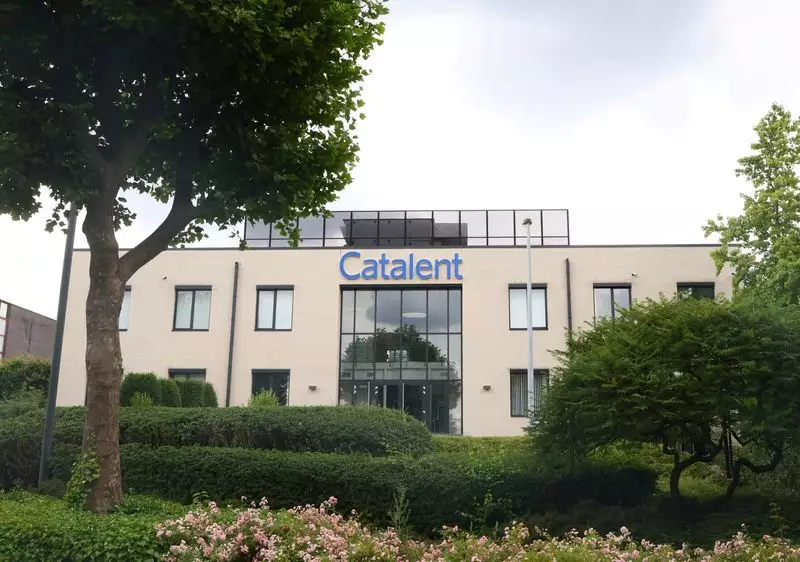The pharmaceutical landscape in the United States is poised for a significant shift, as the proposed $16.5 billion acquisition of Catalent by Novo Holdings, the controlling shareholder of Novo Nordisk, stirs protests from consumer advocacy groups and major labor unions. This move has initiated extensive discussions regarding its potential implications, particularly concerning competition in the burgeoning markets of weight-loss medications and gene therapies. The reaction from various stakeholders, including prominent consumer organizations and influential labor unions, reflects heightened concerns regarding the monopolization of groundbreaking therapies that have changed the paradigm in healthcare.
The acquisition could impede competition, especially in the GLP-1 class of drugs, which have gained traction for their effectiveness in weight management. Novo’s flagship product, Wegovy, has garnered attention for its ability to promote significant weight loss, positioning it as a frontrunner in the obesity management segment. However, with competitors like Amgen, Pfizer, and Roche working on their own GLP-1 products, the potential dominance of Novo raises the stakes. Consumer and labor groups express serious concerns that this consolidation may restrict rival companies from accessing the necessary manufacturing capabilities and expertise required to launch their products.
A letter sent to the Federal Trade Commission (FTC) emphasized that the acquisition raises critical questions about whether emerging competitors will have sufficient access to the resources needed to bring their products to market. Statements from entities involved underscore the apprehension that Novo’s expansion could stifle innovation and limit options for patients who need diverse treatment alternatives.
U.S. Senator Elizabeth Warren’s call for the FTC to carefully scrutinize the acquisition indicates a growing political awareness regarding the implications of such mergers. The potential challenges raised by the consumer groups, including organizations like the U.S. Public Interest Research Group and the SEIU, depict a united front in apprehension of the deal’s impact on market competition. With varying organizations lending their voices to the issue, the matter has escalated beyond mere corporate negotiations into a broader public discourse about health equity and patient access.
Moreover, advocacy groups assert that the ramifications of this acquisition extend beyond existing medications. David Balto, an antitrust lawyer representing these groups, argues for a thorough investigation into how this merger could affect future advancements, particularly in the fast-evolving domain of gene therapies. The importance of gene therapies for treating chronic conditions is indisputable; therefore, any constraints that could arise from this acquisition must be cautiously assessed.
Catalent’s existing contracts with pharmaceutical firms for gene therapy production, such as those with Sarepta Therapeutics and Novartis, highlight the significance of its operational capacity. With the rise of innovative gene therapies that hold the potential to revolutionize treatment paradigms for several inherited and chronic diseases, a reduction in manufacturing capabilities due to this acquisition could have dire consequences for drug development prospects.
The consumer advocacy groups have voiced apprehension regarding Novo Holdings’ capability to impact Catalent’s production capacity for gene therapies. This concern is substantiated by the mention of existing contracts with key players in the gene therapy sector. While Sarepta has indicated little to no anticipated impact from the acquisition, these assurances are not universal across the board, necessitating a rigorous examination by regulators.
In light of the criticisms, Novo Holdings maintains that they remain confident in the pro-competitive rationale behind the transaction. The assertion that the acquisition will enhance Catalent’s operational capabilities contradicts the concerns raised about reduced competition. Furthermore, Novo Nordisk’s statement regarding adherence to existing contracts demonstrates an attempt to assuage concerns, albeit skepticism persists regarding the potential bias toward their products at the cost of options for other manufacturers.
Both companies present the acquisition as a step toward improving patient outcomes and providing better services. However, consumer groups argue that this perspective overlooks the broader implications for competitive market dynamics and affordability of therapies.
The proposed acquisition of Catalent by Novo Holdings encapsulates a tense intersection of innovation, competition, and health equity within the pharmaceutical industry. As the FTC prepares for a thorough investigation, stakeholders across the board must engage in a nuanced dialogue appreciating the complexities of competition in medicinal product development. In an era where health advancements govern the trajectory of patient care, it is imperative to prioritize a landscape that champions competitive practices, fosters innovation, and ensures access to diverse therapeutic options for all patients.

